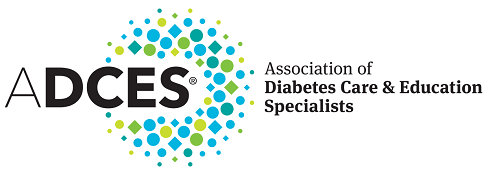
The Value of Diabetes Education
Providing effective outcomes to people with diabetes through ongoing diabetes care and education
The Value of Diabetes Education
The research points to the diabetes care and education specialist as the most effective clinician to provide support to people with diabetes on their healthcare journey, implementing lifestyle change and technology into everyday life. When implemented and utilized across health systems, research shows that support provided by a diabetes care and education specialist may increase utilization and lower healthcare costs.
Value of the DCES on Quality of Life
Davidson P, LaManna J, Davis J, et al. The effect of diabetes self-management education on quality of life for persons with type 1 diabetes: a systematic review of randomized controlled trials. Sci Diabetes Self Manag Care, 2022;48(2), 111–135.
Davidson et al concludes that, “DSME has the potential to influence QoL outcomes in people with T1DM” and finds, “….direct clinical interaction is an important component to include when developing technology-delivered DSME interactions.”
Read the ReviewValue of the DCES on Clinical Impact
Powell, RE, Zaccardi, F, Beebe, C, et al. Strategies for overcoming therapeutic inertia in type 2 diabetes: A systematic review and meta-analysis. Diabetes Obes Metab. 2021; 23( 9): 2137– 2154.
Powell et al. find, “….the most effective approaches to mitigating therapeutic inertia and improving HbA1c were those that empower nonphysician providers such as pharmacists, nurses and diabetes educators to initiate and intensify treatment independently….”
Discover the StrategiesValue of the DCES Utilization and Cost
Whitehouse CR, Haydon-Greatting S, Srivastava SB, et al. Economic impact and health care utilization outcomes of diabetes self-management education and support interventions for persons with diabetes: A Systematic Review and Recommendations for Future Research. Sci Diabetes Self Manag Care. 2021 Dec;47(6):457-481. Epub 2021 Nov 3. PMID: 34727806.
Whitehouse et al. conclude that, “DSMES interventions may positively impact economic outcomes and/or health care utilization….” — meaning costs related to inpatient admissions, emergency department utilization and total costs of care tended to be lower for people with diabetes who received DSMES services than individuals who did not.
Read the ReviewValue of the DCES on Implementing Diabetes Technology
Greenwood DA, Litchman ML, Isaacs D, et al. A New Taxonomy for Technology-Enabled Diabetes Self-Management Interventions: Results of an Umbrella Review. Journal of Diabetes Science and Technology. August 2021.
Greenwood et al. conclude that, “Technology-enabled diabetes self-management interventions continue to be associated with improved clinical outcomes.”
Read the ReviewValue of the DCES on Technology Integration and Optimization
Two recent publications provide guidance regarding technology optimization and integration and point to the diabetes care and education specialist at the key integrator with people with diabetes (PWD) and in the healthcare system: Greenwood DA, Howell F, Scher L, et al. A framework for optimizing technology-enabled diabetes and cardiometabolic care and education: the role of the diabetes care and education specialist. Diabetes Educ. 2020;46(4):315-322.
The Identify, Configure, Collaborate (ICC) Framework describes a 3-step, simplified, systematic approach to optimize technology enabled diabetes care and education. This framework can streamline the process of technology implementation and use of patient generated health data (PGHD).
Read the ArticleValue of the DCES on Technology Integration
Isaacs D, Cox C, Schwab K, et al. Technology integration: the role of the diabetes care and education specialist in practice. Diabetes Educ. 2020;46(4):323-334.
The DATAA Model, presents a simple approach for HCPs and PWD to collaborate and evaluate ambulatory glucose profile data. This simplified approach offers a model for implementation for health systems, providing increased access and support to people with diabetes.
Read the ArticleThe DCES in the Standards of Care (2021)
American Diabetes Association. 7. Diabetes technology: standards of medical care in diabetes-2021. Diabetes Care. 2021;44(suppl 1):S85-S99.
The ADA SOC 2021 indicated that “diabetes technology, when coupled with education and follow-up, can improve the lives and health of PWD; however, the complexity and rapid change of the diabetes technology landscape can also be a barrier to patient and provider implementation.”
Read the 2021 StandardsThe DCES in the Standards of Care (2022)
American Diabetes Association. 7. Diabetes technology: standards of medical care in diabetes-2022. Diabetes Care. 2022; ;45(Suppl. 1):S97–S112.
The ADA SOC 2022 reinforce the points in 2021 and cite healthcare providers and manufacturers as important sources information for device decision-making and troubleshooting. The ADA SOC 2022 also expand the recommended population of individuals who should be using CGM. As CGM utilization increases, it is critical for professional organizations, like ADCES®, to identify gaps in provider knowledge and enhance our educational offerings for clinicians to optimize care and technology integration into practice.
Read the 2022 Standards

